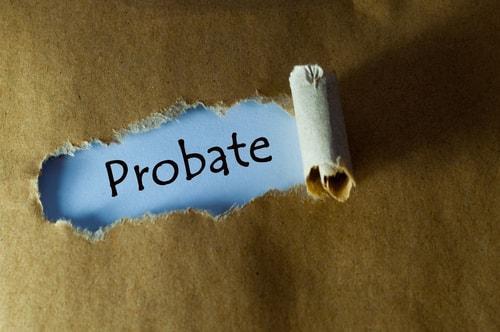Recent Blog Posts
Mistakes to Avoid in Your Parenting Hearing
 Whether the allocation of parental responsibilities determinations are done by negotiating with your spouse or become a “battle” in front of a court, this portion of divorce is often the most difficult. Every parent wants the best for their children, and it can be difficult to figure out what is “best” when you and your spouse are accustomed to co-parenting under one roof. Parenting cases can get ugly even when divorcing couples are on amicable terms.
Whether the allocation of parental responsibilities determinations are done by negotiating with your spouse or become a “battle” in front of a court, this portion of divorce is often the most difficult. Every parent wants the best for their children, and it can be difficult to figure out what is “best” when you and your spouse are accustomed to co-parenting under one roof. Parenting cases can get ugly even when divorcing couples are on amicable terms.
Common Errors
The determination of your parenting plan is an important part of the divorce process to prepare for. An experienced attorney should warn you of the following mistakes:
- Talking About the Case with Others: While it may be an instinct to confide in friends, this can lead to your demise in the end. You and your spouse probably still have mutual friends or friends that know each other, and gossip spreads fast. It is important to keep the details of your case confidential to avoid accidentally informing your ex about your defense tactics.
Financial Mistakes to Avoid During an Illinois Divorce

It is no secret that getting a divorce is expensive. Not only can you lose money in the process, but the time and energy required can also take a toll. A divorce can compromise your finances, so it is important to be smart about money during this time.
During divorce, marital property is divided between spouses, and this property includes all assets and debts acquired during the marriage. When property is divided between divorcing spouses in Illinois, this division should be done in a fair way. This is referred to as equitable distribution. However, each spouse's share of the assets is rarely equal, as decisions about the division of assets are based on many factors, such as the length of the marriage and the couple's standard of living.
The share of marital property that you receive following your divorce may enable you to maintain financial security, but you will likely also want to take other steps to protect your finances. This will help you make sure you will be able to meet your own needs as you move on to the next stage of your life after your divorce has been finalized.
Should You Consider a Pet Trust for Your Furry Companions?
 If you have started the process of estate planning, there is a good chance that you have spent some time thinking about how you will distribute your assets among your children, grandchildren, loved ones, and, possibly, charitable organizations. Depending on the size of your family or your circle of friends, it could be quite easy to overlook the pets that might be an important part of your life. Is it possible to look after companion animals like dogs or cats in your estate plan? In short, the answer to that question is yes.
If you have started the process of estate planning, there is a good chance that you have spent some time thinking about how you will distribute your assets among your children, grandchildren, loved ones, and, possibly, charitable organizations. Depending on the size of your family or your circle of friends, it could be quite easy to overlook the pets that might be an important part of your life. Is it possible to look after companion animals like dogs or cats in your estate plan? In short, the answer to that question is yes.
What Are Pet Trusts?
Under Illinois law, a person is permitted to create and fund a trust for the stated purpose of providing for the care of "one or more designated domestic or pet animals." The applicable part of the Illinois Trusts and Trustees Act (760 ILCS 5/15.2) does not specify the types of animals that can be covered, but a series of cases in Illinois courts have set precedents that allow pet trusts to cover dogs, cats, horses, and several other animals. Livestock, such as cows and sheep, are generally not eligible.
Tips for Estate Planning with an Uncooperative Spouse
 The benefits of proper estate planning cannot be overstated. Drafting a will, trust, or utilizing other estate planning documents puts you in charge of you and your family’s future in a way that nothing else can. Having a comprehensive estate plan also saves your loved ones the burden of making highly personal decisions on your behalf if you are incapacitated or pass away. Many married couples, especially couples with children, recognize the importance of estate planning. However, there are some situations in which one spouse is interested in estate planning but the other spouse does not want to participate. If you are married and interested in gaining the many benefits that come with a comprehensive estate plan but your spouse is disinterested, consider the following tips.
The benefits of proper estate planning cannot be overstated. Drafting a will, trust, or utilizing other estate planning documents puts you in charge of you and your family’s future in a way that nothing else can. Having a comprehensive estate plan also saves your loved ones the burden of making highly personal decisions on your behalf if you are incapacitated or pass away. Many married couples, especially couples with children, recognize the importance of estate planning. However, there are some situations in which one spouse is interested in estate planning but the other spouse does not want to participate. If you are married and interested in gaining the many benefits that come with a comprehensive estate plan but your spouse is disinterested, consider the following tips.
Consider Why Your Spouse Is Not Interested in Estate Planning
Estate planning can bring up many upsetting topics. Wills and trusts deal with what happens to your property upon your death. Advance medical directives dictate how healthcare and financial decisions should be made on your behalf if you are incapacitated through illness or injury. Naming a guardian for minor children forces you to consider who you would want to raise your children if you and your spouse pass away before the children are adults. It is completely understandable that many people would want to avoid these topics – especially if they do not understand the advantages estate planning brings.
What Factors Are Considered When Dividing Property During Divorce?

When a married couple gets divorced, they must split up the life they created together. When it comes to dividing property, there are many factors that determine who gets what during a divorce. However, each spouse is entitled to receive a fair portion of the marital assets. During divorce, it is best to seek legal counsel in order to understand your rights and the best approach to take as you determine how to divide your marital property.
Equitable Distribution
In the state of Illinois, marital property is divided using a system of equitable distribution. While this term may lead one to believe that property is divided equally, this is not necessarily true in every case, and property will be divided based on what is fair for both spouses. There is rarely a 50/50 split of property during a divorce. What is determined to be fair by the courts is based on a variety of factors, including:
Summer: Wedding Season or Divorce Season?
 When most people think of summer, they imagine attending weddings and enjoying time spent with their families. Unfortunately, this is not the case for many couples. According to research conducted by University of Washington sociologists between 2001 and 2015, there is a biannual pattern for divorce. The months of March and August have been found to have high volumes of divorce. While it may seem like a coincidence, there are actually reasons for this spike in ending marriages.
When most people think of summer, they imagine attending weddings and enjoying time spent with their families. Unfortunately, this is not the case for many couples. According to research conducted by University of Washington sociologists between 2001 and 2015, there is a biannual pattern for divorce. The months of March and August have been found to have high volumes of divorce. While it may seem like a coincidence, there are actually reasons for this spike in ending marriages.
Why the Divorce Pattern?
All relationships are different thus making each divorce case unique. Despite the individuality of each couple, studies have found a few common denominators that may contribute to this seasonal divorce pattern.
- Post-Holiday Blues: Holiday season is charged with excitement and fun activities to attend. Whether it is Christmas dinner or a Fourth of July barbecue, families spend a lot of time together throughout the holidays. This brings many families together but can also drive some apart. It is common for all of this "family togetherness" to cause emotions to rise and friction to occur. Most couples will wait for things settle down after the holidays before officially deciding to go separate ways.
Understanding the Purpose of Probate
 If you have started creating your own estate plans or you have recently lost a loved one, you may have heard the term “probate.” This term is used to refer to the legal proceedings which transfers a deceased individual’s assets to heirs. If the deceased person, or decedent, has signed a will before he or she died, the probate courts determine whether or not the will is enforceable and oversee the distribution of the decedents’ assets. If a decedent does not have a will or the will is not enforceable, the probate process is much more involved. Because it can often be time-consuming and expensive, many people try to avoid probate through careful estate planning.
If you have started creating your own estate plans or you have recently lost a loved one, you may have heard the term “probate.” This term is used to refer to the legal proceedings which transfers a deceased individual’s assets to heirs. If the deceased person, or decedent, has signed a will before he or she died, the probate courts determine whether or not the will is enforceable and oversee the distribution of the decedents’ assets. If a decedent does not have a will or the will is not enforceable, the probate process is much more involved. Because it can often be time-consuming and expensive, many people try to avoid probate through careful estate planning.
What Happens During Probate?
The probate process differs from estate to estate depending on several factors. If the decedent had a will, the judge will ensure that the will meets the criteria required by Illinois probate law. Wills must be written and signed by the deceased person. If evidence exists to suggest that the deceased person wrote their will under undue influence or that the will is fraudulent in some way, the will may be invalidated.
How Can I Help My Adult Child Cope With My Illinois Divorce?

When a married couple decides to get a divorce, a child under the age of 18 is directly affected. In Illinois, the parental responsibilities for a child are allocated between parents during divorce. The living situation of a young child may change as well, since parenting time is also split between each parent. However, once a child becomes an adult and has moved out of the house, the parents' divorce may not change his or her day-to-day life, but it can still have a significant emotional impact. It is important for parents to communicate with their adult child throughout their divorce proceedings, and this can help all family members make as smooth a transition as possible.
Tips for a Positive Relationship With Your Adult Child
Parents may assume that an adult child will be unaffected by divorce. In fact, a child of any age who is watching his or her parents get divorced is still likely to face a variety of challenges. When living away from home, a divorce may come as a shock, and a child may struggle to adjust to the changes. Although an adult child can, in theory, process the trauma of divorce better than a young child, he or she may not want to deal with the emotional baggage, and this can cause relationships between parents and children to suffer.
Beware of Trust Mills and Similar Estate Planning Scams
 Every adult should have some type of estate plan in place. Even just a relatively simple will could provide a great deal of security and direction for surviving loved ones in the event of a tragedy. However, the reality is that more than half of Americans do not have an estate plan of any kind.
Every adult should have some type of estate plan in place. Even just a relatively simple will could provide a great deal of security and direction for surviving loved ones in the event of a tragedy. However, the reality is that more than half of Americans do not have an estate plan of any kind.
While there may be many reasons for this, arguably the most common is procrastination. Most people realize that an estate plan is a good idea, but it is not always something that is a high priority. As a result, people tend to wait until they approaching retirement age to begin the process. Those who wait, unfortunately, often find themselves the unwitting targets of scammers who are simply looking to make money as they prey on the fears and uncertainty of those looking for peace of mind.
What Are Trust Mills?
Estate planning scams can take many forms, and they are not limited to shady-looking, back-alley operations. Fully licensed attorneys have been known to take advantage of estate planning and administration situations in an attempt to collect unnecessary fees. Trust mills are another common source of estate planning scams that you should be aware of.
What Financial Support Can I Receive as a Stay-at-Home Parent After an Illinois Divorce?

These days, it is more common for both parents in a household to hold a career while raising children together. However, having one parent stay at home to raise children is still a popular option for many families. This choice may be the personal preference of the homemaker, or a couple may find this option to be more financially feasible. Either way, for a stay-at-home parent, getting a divorce can be a difficult and nerve-wracking situation.
If you are a stay-at-home parent, you are likely the primary caregiver for your children. Although you may have had a career or job at one time, being a full-time stay-at-home parent has taken you out of the workplace. It may be necessary to go back to work after a divorce to support yourself and your children, but several post-divorce financial solutions may assist you with getting back on your feet financially.
Post-Divorce Financial Support
- Spousal Maintenance: Also referred to as alimony, spousal maintenance is the amount of money a higher-earning spouse may be obligated to pay the lesser-earning spouse after a divorce. A stay-at-home parent does not automatically get alimony, but a judge will make that decision based on factors such as the length of the marriage, the earning potential of each spouse, the spouses' accustomed standards of living, and the health and ages of both parties. Guidelines defined in Illinois law will be used to calculate how much spousal maintenance will be paid, and for how long.












